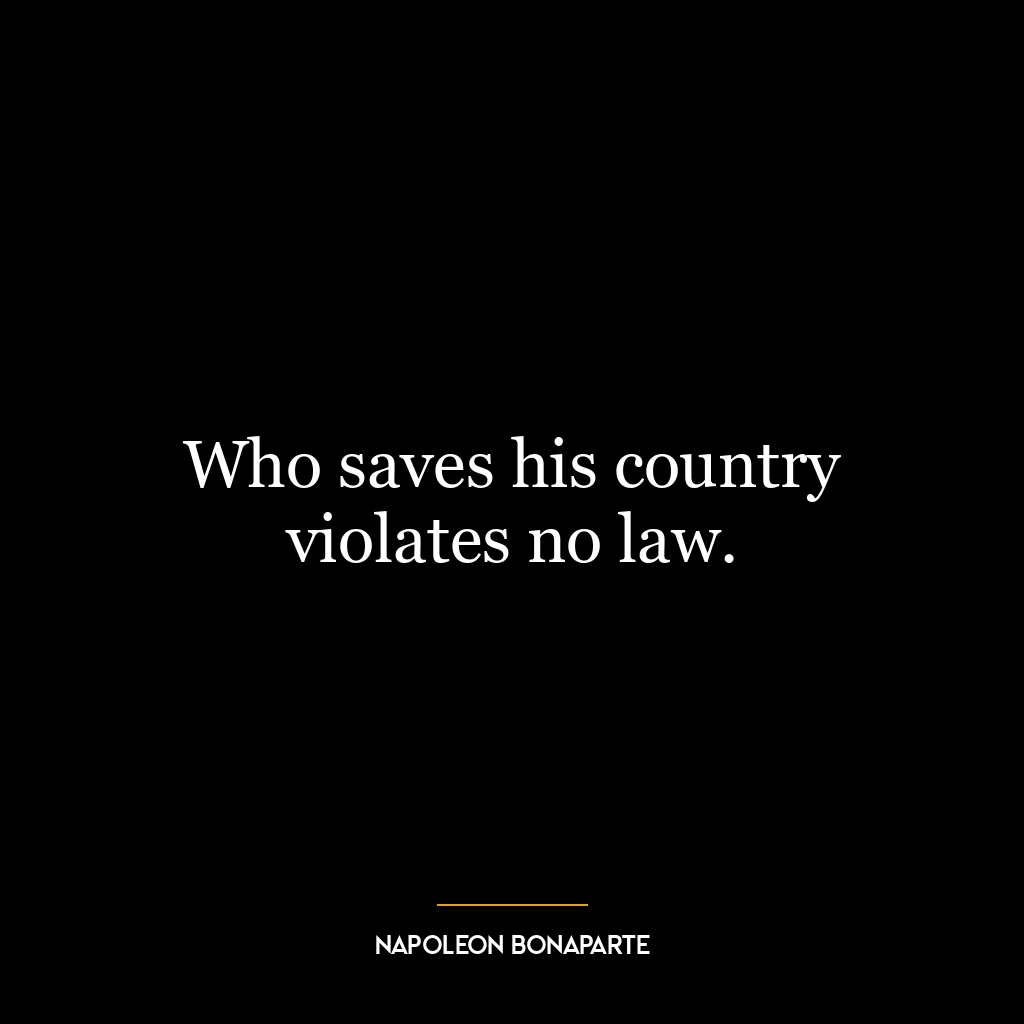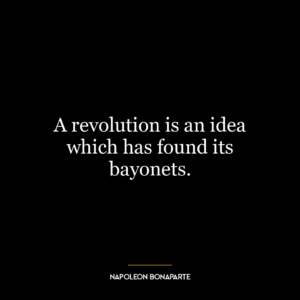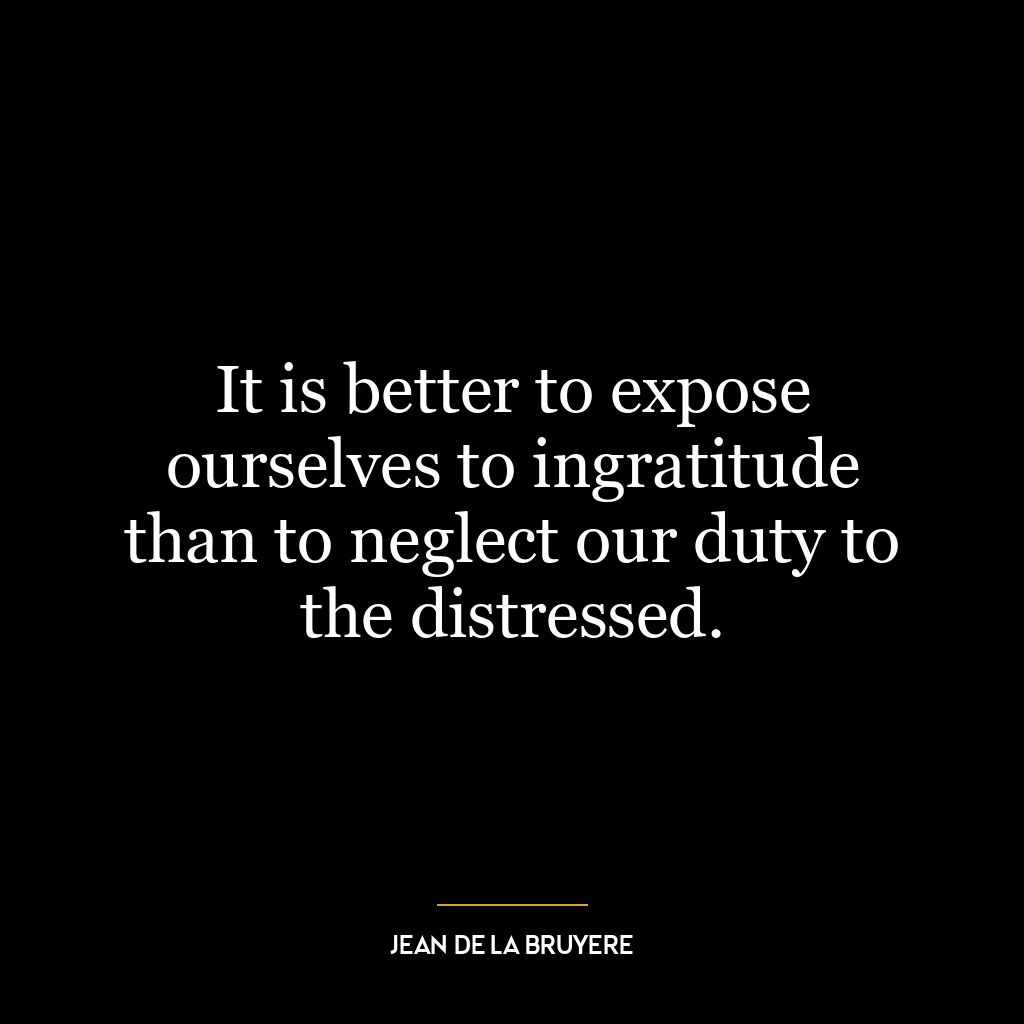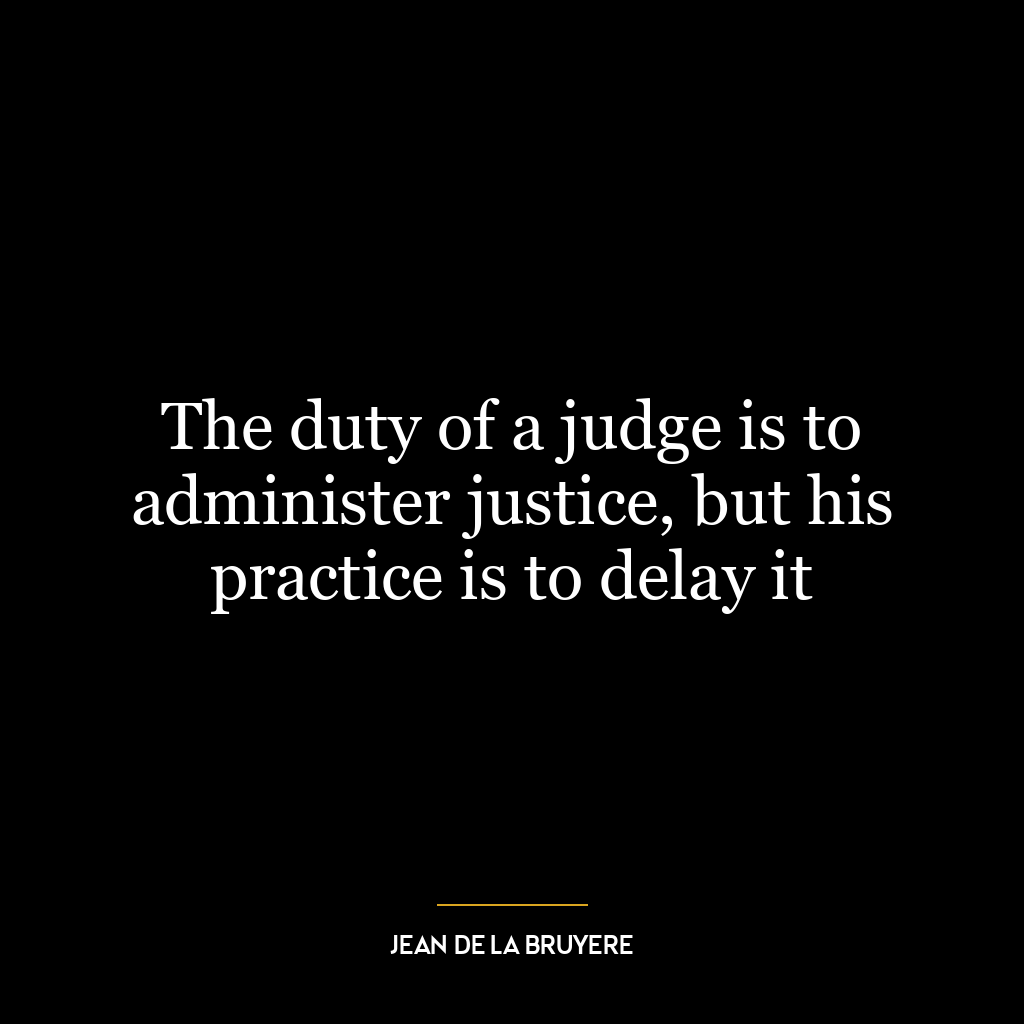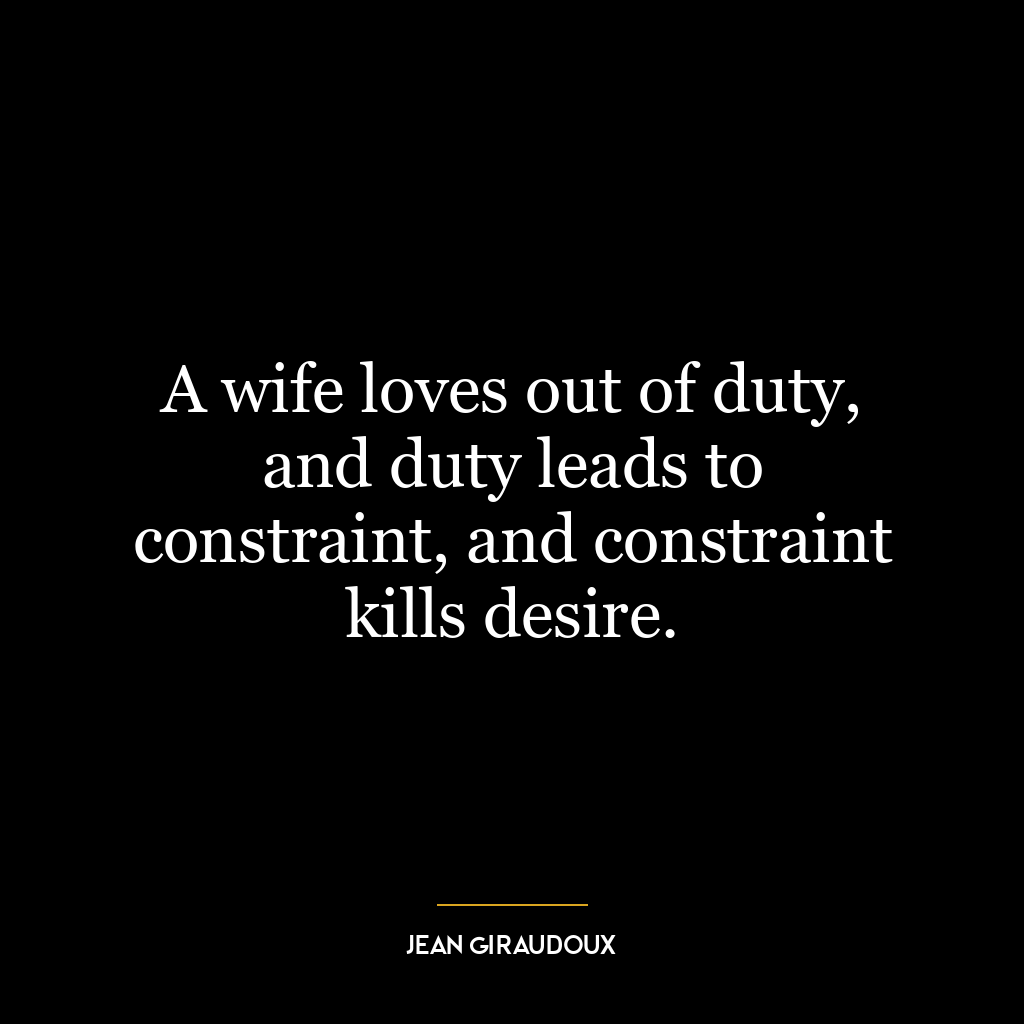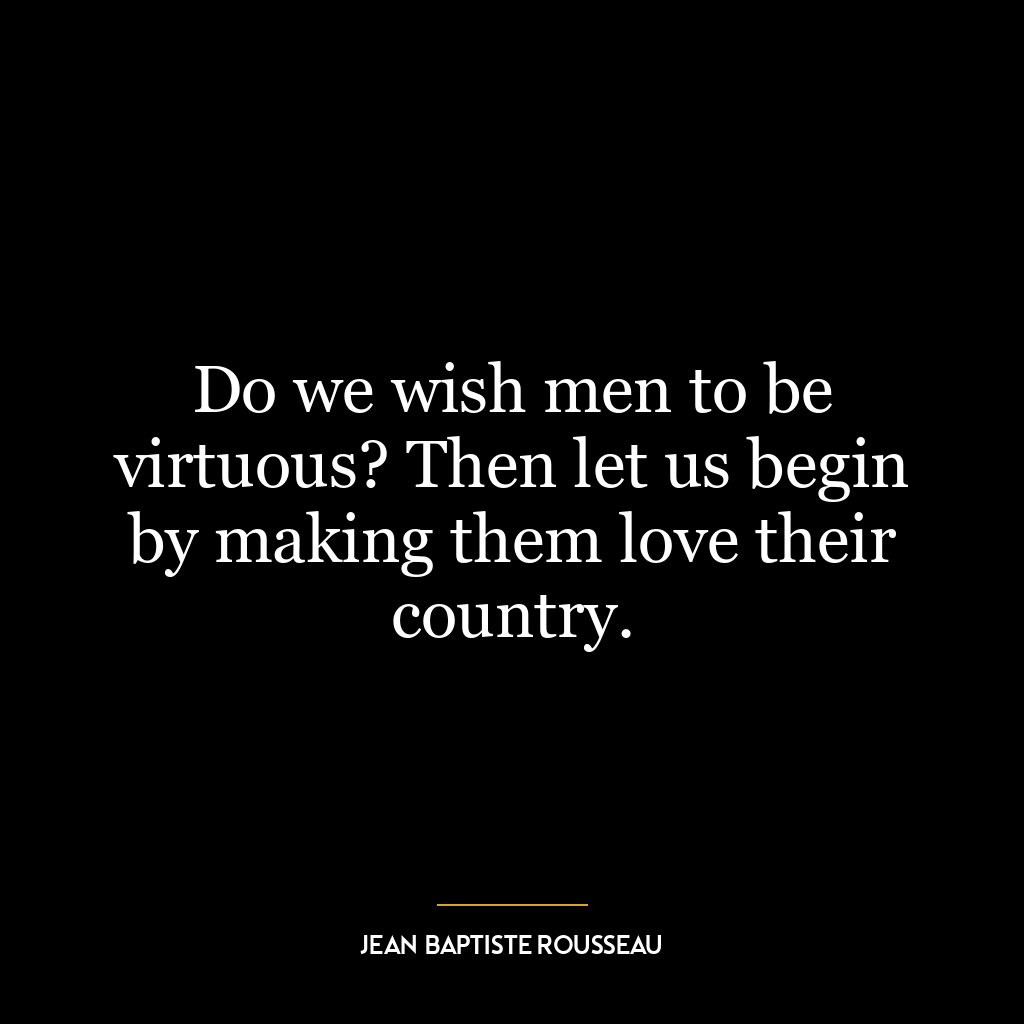This quote suggests that any actions taken in the interest of preserving one’s nation, no matter how extreme or seemingly unlawful, can be justified. It is grounded in the belief that the survival and preservation of the nation is the ultimate law, superseding all other laws.
One interpretation of this quote could be that in times of crisis or threat, leaders may need to take extraordinary measures to protect the nation. This could involve actions that, under normal circumstances, would be considered illegal or unethical. However, the quote suggests that when the survival of the nation is at stake, these actions are not only justifiable but necessary.
This quote could also be seen as a reflection of the concept of ”the ends justify the means.” In other words, if the end goal is to save one’s country, then any means used to achieve this goal, no matter how extreme, are justified.
In today’s world, this quote might be applied in various contexts. For instance, in times of war or conflict, leaders might argue that certain actions, such as surveillance or restriction of civil liberties, are necessary for national security. Similarly, in response to a pandemic, governments might enforce strict lockdown measures or mandatory vaccinations, which could be seen as infringing on individual rights. However, according to the logic of the quote, these actions could be justified if they are deemed necessary to save the country.
In terms of personal development, this quote could be interpreted as advocating for a form of moral relativism, where the rightness or wrongness of an action depends on the circumstances. It suggests that in certain situations, breaking the rules might be necessary to achieve a greater good. This could potentially apply to situations where individuals face ethical dilemmas, and must decide between adhering to established rules or taking unconventional actions for the sake of a higher cause.

